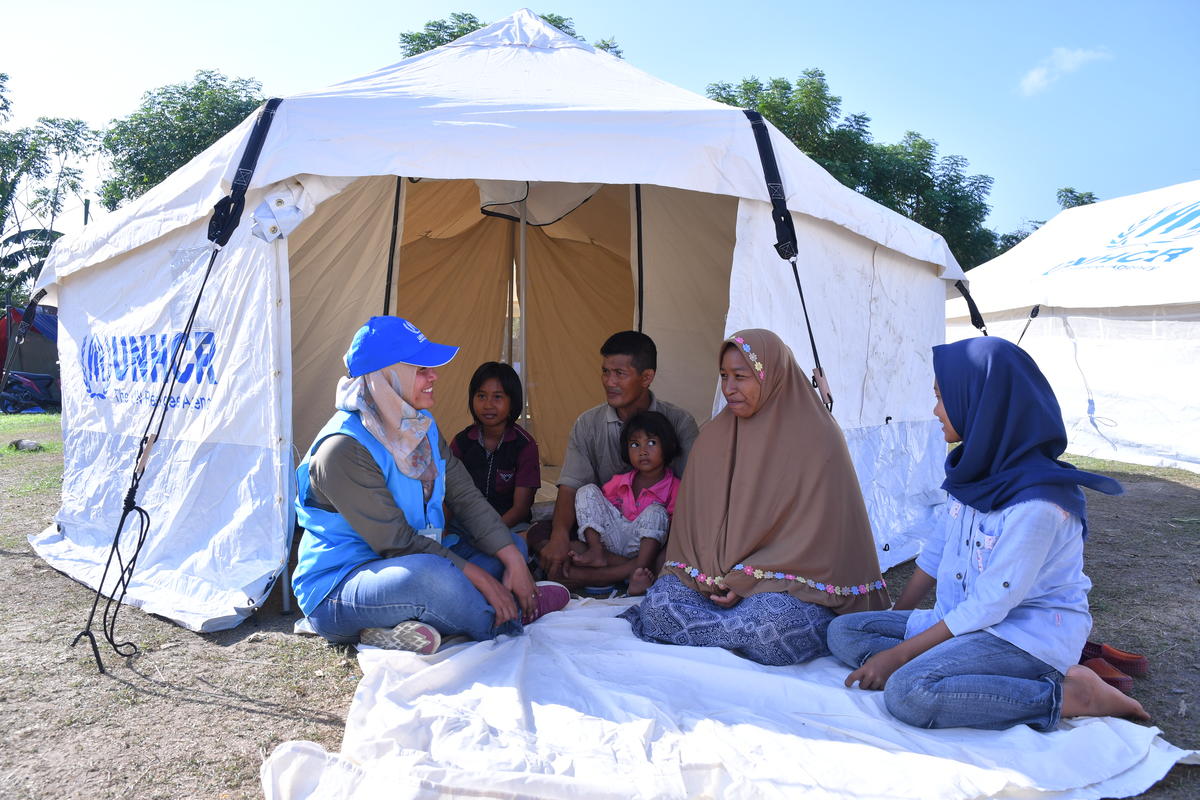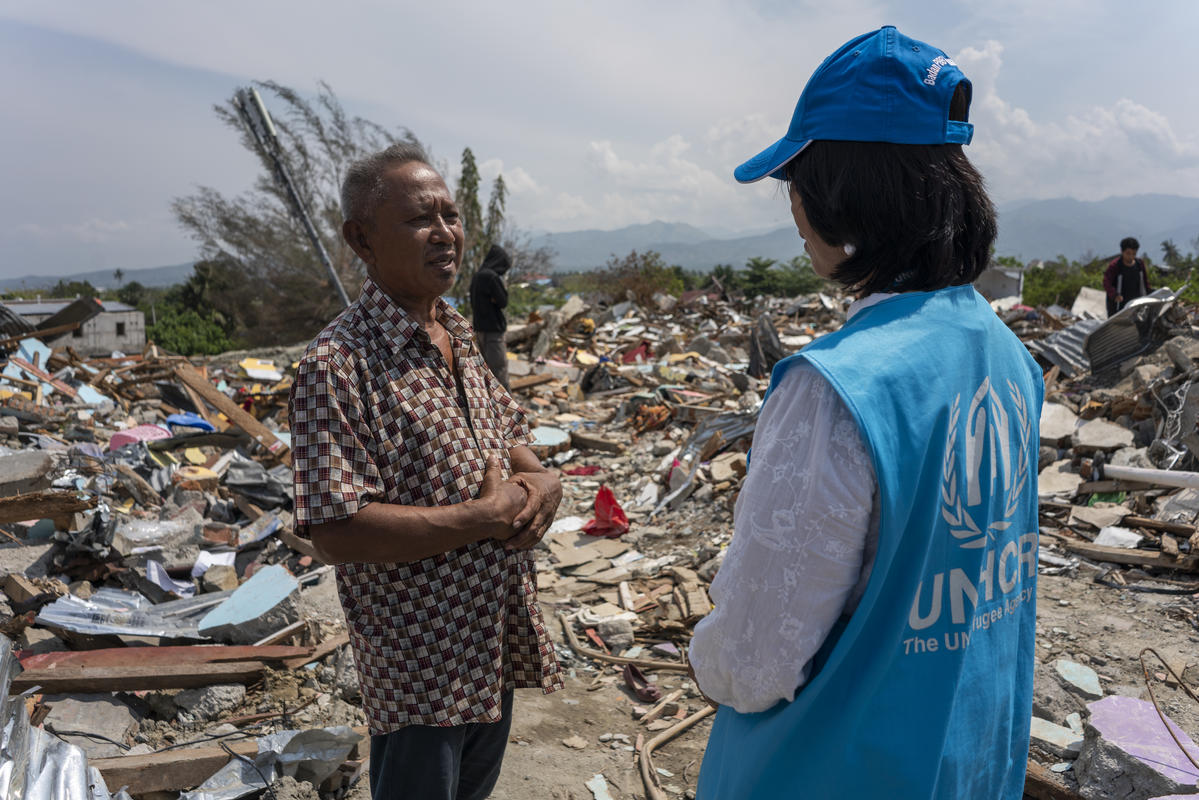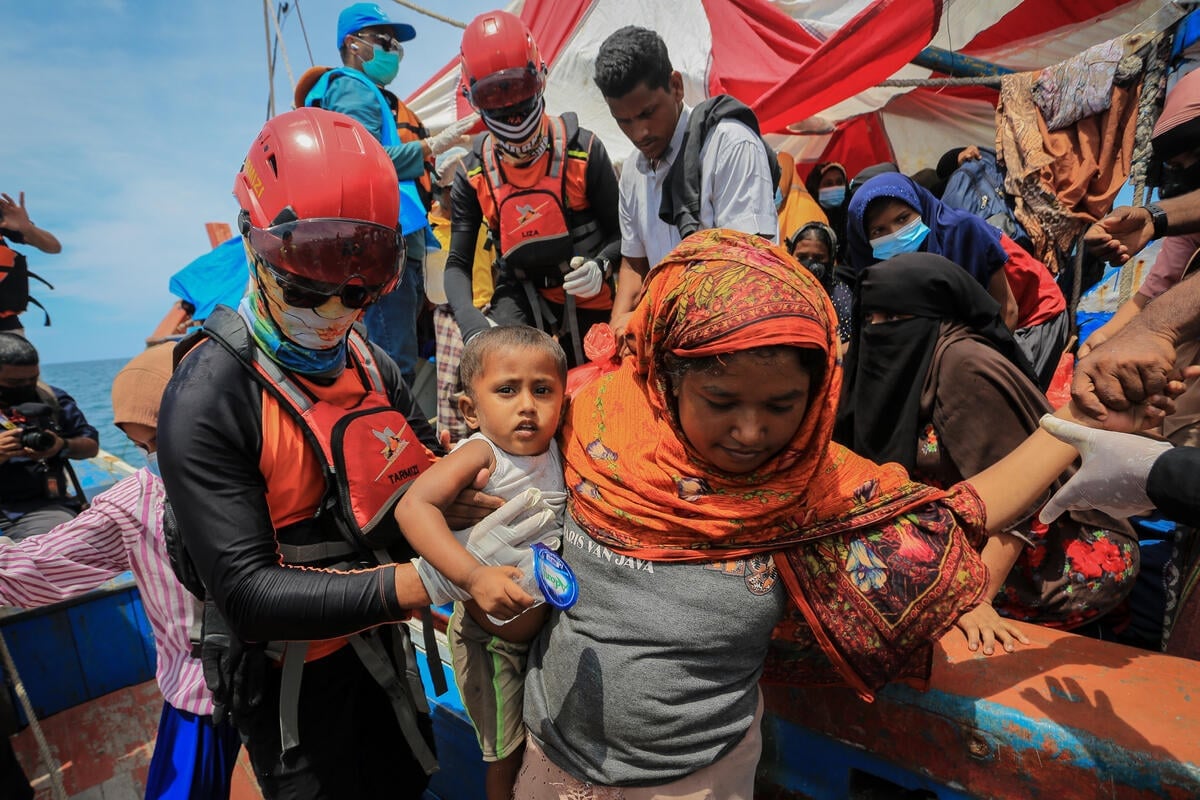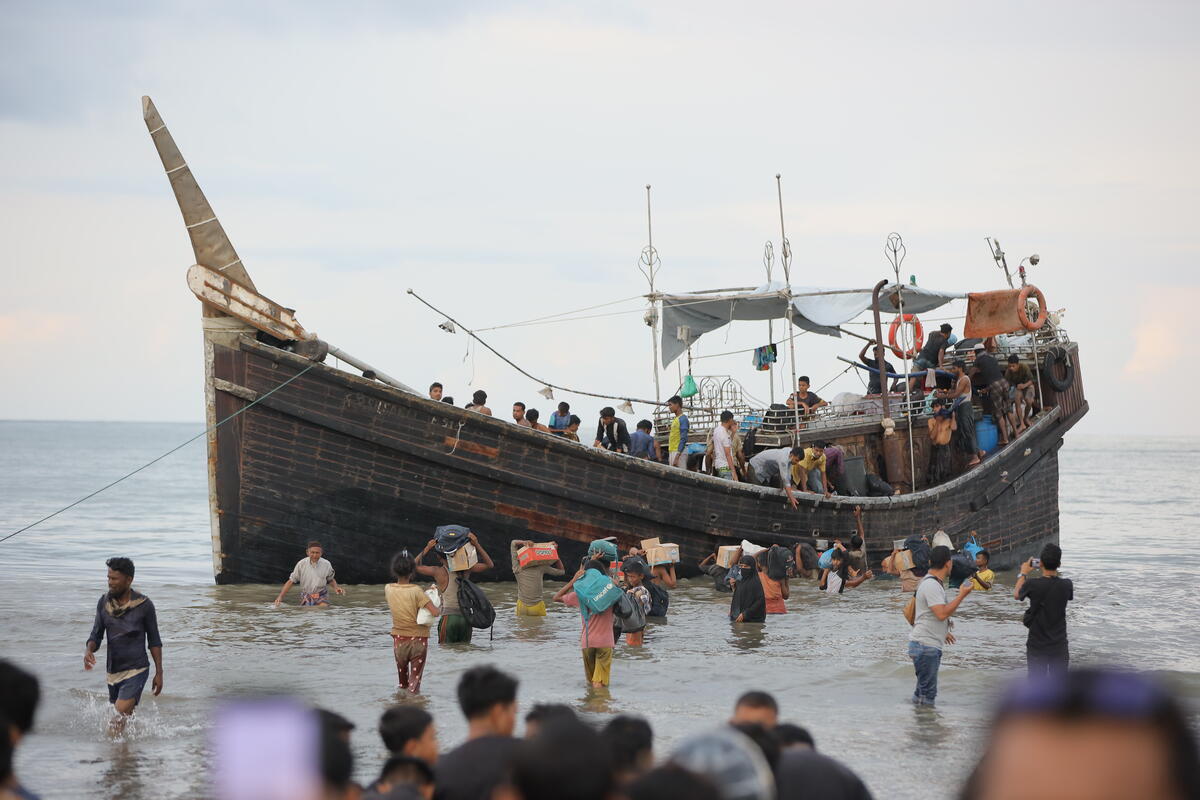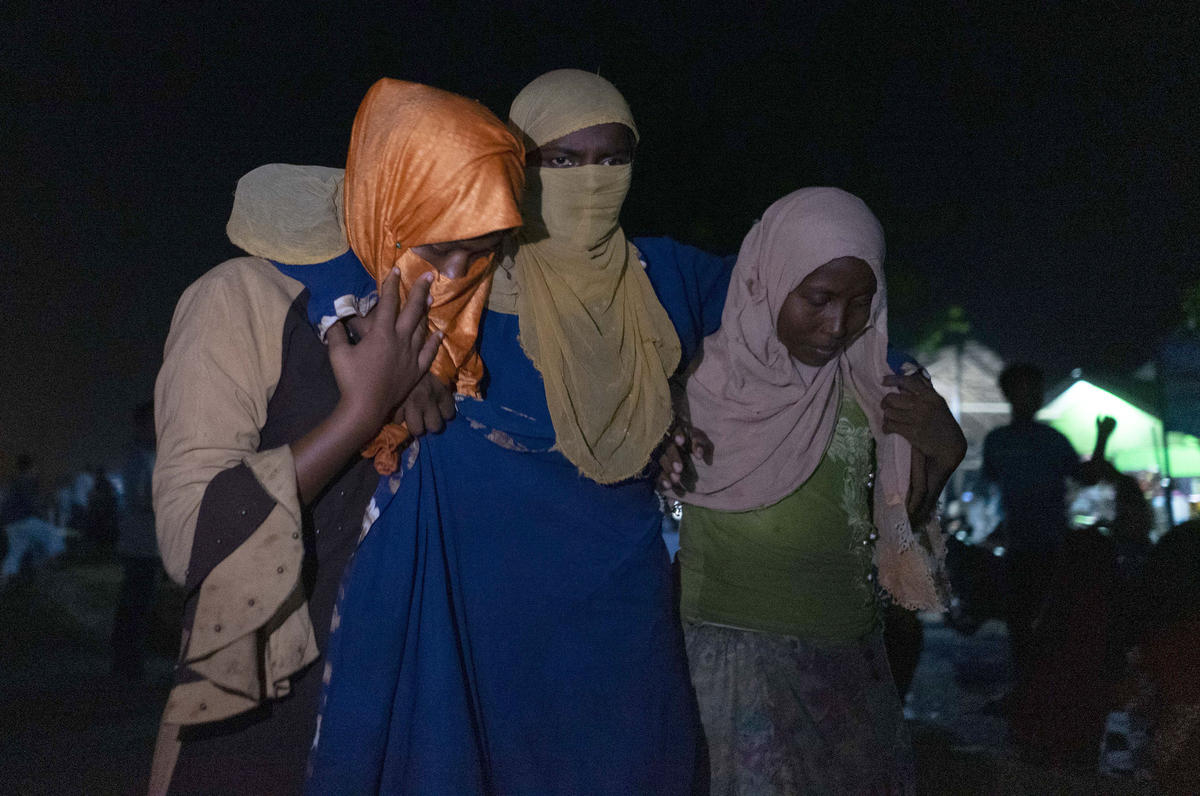Timor Emergency Update
Timor Emergency Update
Evacuations
A total of 462 workers of UNHCR and other UN and international aid agencies and their dependents have been evacuated from West Timor to East Timor and the Indonesian island of Bali following the killings of three UNHCR staff members in West Timor on Wednesday.
Because of the viciousness of the attack, UN authorities in Dili, East Timor, have only been able to identify the remains of one of the three murder victims. Killed during the attack were Samson Aregahegn, 44, an Ethiopian; Carlos Caceres, 33, an American; and Pero Simundza, 29, a Croatian. The bodies were flown to Dili on Thursday hours after they were transported by land from Atambua to Batugade in East Timor.
Of the total number evacuated, 167 people were transported from Atambua by helicopters of the UN Peacekeeping Force in East Timor or overland across the border using trucks and buses escorted by the Indonesian military to the border with East Timor. UNHCR and the International Organization for Migration arranged commercial and charter flights for another 295 relief workers and dependents evacuated from the West Timor capital of Kupang.
By late Monday, all aid workers of UN and aid agencies had been pulled out of West Timor, bringing to a halt international humanitarian relief operations in the Indonesian-controlled half of the island. This marks the first time that all international aid workers have withdrawn from West Timor since UNHCR began aid activities following the exodus of more than 250,000 East Timorese in the violent aftermath of the 30 August 1999 vote for the independence of East Timor from a quarter century of Indonesian rule.
Last month, UNHCR suspended aid operations in West Timor for a week after three of its staff were severely beaten while distributing plastic sheeting at Naen camp outside Kefamenanu town, 130 km east of Kupang.
More than 120 incidents of harassment and intimidation against aid workers and refugees have been recorded since UNHCR established a presence in West Timor a year ago. UNHCR has gone to Indonesian officials to protest after each incident. Each time, UNHCR received assurances that it would have security and unimpeded access to the refugees in accordance with commitments Indonesia made in an agreement with UNHCR signed in October 1999. But Indonesian police and military failed to act swiftly in most of these security incidents. And the attacks continued.
UN Security Council
In a resolution Friday, the UN Security Council said it was appalled by what it described as an "outrageous and contemptible act against unarmed international staff who were in West Timor to help the refugees." It said those responsible for attacks on international personnel in West and East Timor must be brought to justice. It also called on Indonesia to take immediate steps to disarm and disband the militia immediately, restore law and order and ensure the safety and security of the refugees in West Timor.
Referring to Indonesian President Abdurrahman Wahid's statement that he had ordered two troop battalions to the troubled region, the council said "UNHCR workers cannot return to West Timor until there is a credible security guarantee, including real progress towards disarming and disbanding the militias."
UN Security officials declared West Timor under phase 5 - the maximum state of alertness. This calls for the relocation of all UN staff from the Indonesian province.
"It is now entirely up to the Indonesian government, we will react accordingly," said François Fouinat, the Geneva-based director of UNHCR's Asia and Pacific bureau, in response to questions by reporters in Dili. Fouinat flew to Dili following Wednesday's killings of the UNHCR staff members.
Unprecedented Attack
The events leading up to the Wednesday attack are still under review, but preliminary reports indicate the following:
On Tuesday, reports the mutilated body of a militia leader was found outside Atambua swept the border town. Rumours spread that militias were preparing to mount a reprisal. As a precaution, UNHCR staff placed two ladders at the rear wall of the office barely a hundred metres from the Indonesian police headquarters across a soccer field.
At 11:30 a.m. the following day, officials of the Indonesian army, or TNI, contacted UNHCR, saying a protest would be staged to mourn the death of the militia leader. The demonstration was reportedly directed at the local council building and UNHCR would not be targeted.
At around 11:50 a.m., three militiamen approached eight Indonesian policemen normally deployed to guard the UNHCR compound, telling them to go away because there will be an attack against UNHCR. The word was passed on to the head of the UNHCR office, who in turn called police to relay the information. He then told around a dozen staff to leave.
But soon after, staff peering through the office windows barricaded with plywood saw around 20 to 30 militiamen armed with machetes and rifles heading swiftly for the office, some on motorcycles. Shouts went out to the staff to leave the office immediately, but the militias caught three and later murdered them. The bodies were then doused with kerosene and set on fire.
It was the worst ever attack against UNHCR staff.
Colleagues say that Simundza, a telecommunications operator who joined UNHCR in Croatia in 1993, was in his room reporting the impending attack to the UNHCR office in Kupang. Witnesses say that Aregahegn, the Ethiopian supply officer, had tried to talk to the militiamen before he was killed. Caceres, a protection officer who arrived in Indonesia in March after working in Moscow, had sent an email to a friend before he was killed. The email was received in UNHCR's Skopje office, at 6:05 a.m., which is about noon West Timor time.
On Thursday, the bodies were transported by a convoy to the border and helicopters from the UN Peacekeeping Force in East Timor airlifted them to Dili, along with some of the survivors. After identification, the bodies will be flown to Darwin and will then be taken to their respective countries.
Memorials
Memorials for the murdered staff members have been held in East Timor and Denpassar, Bali, where most of the UNHCR Kupang staff have been evacuated. In Geneva, a memorial service will be held at the Palais des Nations on Tuesday at 5 p.m. Other UNHCR offices worldwide have also honoured the victims.
"These were peaceful, unarmed humanitarians who gave their lives trying to help those who had lost everything in conflict. Words cannot express the sorrow all of us at UNHCR are feeling today, and our hearts go out to the families of the victims.," High Commissioner Sadako Ogata said in a statement.
Refugees in West Timor
Since establishing a presence in West Timor in September 1999, UNHCR has been mainly involved in the repatriation of East Timorese refugees. Nearly 170,000 East Timorese have returned to East Timor since then. An estimated 125,000 refugees remain in West Timor. Indonesian authorities say about half of this number want to return to East Timor.
Food assistance mainly comes from the Indonesian government, but in recent months, UNHCR has been involved in providing health, water, sanitation and community services for the refugees in West Timor.
With the departure of the international aid workers, the responsibility for taking care of the refugees now falls squarely on the Indonesian government.




